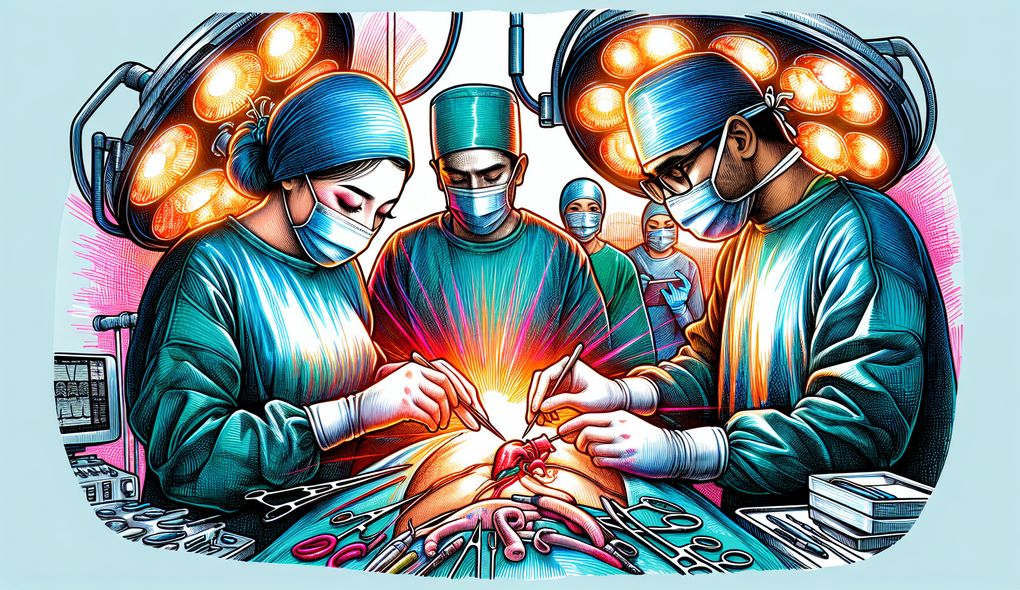How do you ensure accurate documentation of surgical procedures and patient interactions?
INTERMEDIATE LEVEL

Sample answer to the question:
To ensure accurate documentation of surgical procedures and patient interactions, I believe in maintaining a systematic approach. First, I carefully review the patient's medical history and relevant records before the surgery. During the procedure, I use an electronic medical record (EMR) system to document every step of the surgery in real-time, including details of the technique used, any complications encountered, and the patient's vital signs. After the surgery, I take the time to review and double-check my documentation for accuracy. Additionally, I collaborate with nurses and other healthcare professionals involved in the patient's care to ensure consistent and comprehensive documentation. By following these steps, I am confident in the accuracy and completeness of the surgical documentation.
Here is a more solid answer:
To ensure accurate documentation of surgical procedures and patient interactions, I have developed a systematic approach that combines effective communication, attention to detail, collaboration, and adherence to protocols. Before the surgery, I thoroughly review the patient's medical history and records, ensuring that all relevant information is documented and easily accessible. During the procedure, I use the hospital's electronic medical record (EMR) system to document every step of the surgery in real-time. I record details such as the surgical technique used, any complications encountered, and the patient's vital signs. After the surgery, I meticulously review and cross-reference my documentation to ensure accuracy. I also collaborate with nurses, anesthesiologists, and other healthcare professionals involved in the patient's care to ensure consistent and comprehensive documentation. By working together, we ensure that all aspects of the surgical procedure and patient interactions are accurately documented. Adhering to established protocols is vital in my practice, and I strictly follow hospital policies and guidelines to maintain the highest standards of documentation. I understand that accurate documentation plays a critical role in patient care, as it provides a comprehensive record for future reference, enables effective communication between healthcare professionals, and ensures the continuity of care. Therefore, I prioritize accuracy and completeness in all my documentation efforts.
Why is this a more solid answer?
The solid answer provides more specific details about the candidate's systematic approach to documentation, including reviewing medical history and records and double-checking documentation for accuracy. It also emphasizes collaboration with other healthcare professionals and adherence to protocols. The answer could be further improved by providing specific examples of how accurate documentation has contributed to patient care or the importance of patient privacy in the documentation process.
An example of a exceptional answer:
To ensure accurate documentation of surgical procedures and patient interactions, I have developed a comprehensive approach that encompasses all aspects of the documentation process. Before a surgical procedure, I conduct a thorough review of the patient's medical records, including previous surgeries, allergies, and other relevant information. This ensures that I have a complete understanding of the patient's medical history and can anticipate any potential complications. During surgery, I utilize advanced electronic medical record (EMR) systems that allow me to document each step of the procedure in real-time. I record details such as the surgical technique used, instruments utilized, and any deviations from the standard protocol. Additionally, I capture intraoperative photos and videos to provide visual documentation for future reference and educational purposes. After the surgery, I review the documentation meticulously to ensure accuracy and completeness. I collaborate closely with the nursing team to cross-reference their notes and ensure consistency of documentation. Furthermore, I prioritize patient privacy by strictly adhering to HIPAA regulations and hospital policies. Accurate documentation is vital for effective communication and comprehensive patient care. It enables seamless handoffs between healthcare providers and facilitates research and quality improvement initiatives. Moreover, accurate documentation ensures patient safety and mitigates medico-legal risks. By following the outlined approach, I guarantee accurate documentation of surgical procedures and patient interactions.
Why is this an exceptional answer?
The exceptional answer demonstrates a comprehensive and detailed approach to surgical documentation. It includes specific strategies such as reviewing medical records, capturing visual documentation, and collaborating with the nursing team. The answer also emphasizes the importance of patient privacy and highlights the broader impact of accurate documentation on communication, patient safety, and medico-legal risks. To further enhance the answer, the candidate could provide concrete examples of how accurate documentation has contributed to improved patient outcomes or research initiatives.
How to prepare for this question:
- Gain familiarity with electronic medical record (EMR) systems commonly used in surgical environments.
- Develop a systematic approach to reviewing and documenting patient information before, during, and after surgical procedures.
- Understand the importance of adherence to protocols and best practices in surgical documentation.
- Practice effective communication and collaboration skills to ensure consistent and comprehensive documentation across healthcare teams.
- Stay updated with HIPAA regulations and hospital policies regarding patient privacy and data security.
What are interviewers evaluating with this question?
- Medical knowledge
- Attention to detail
- Collaboration
- Adherence to protocols
- Communication

